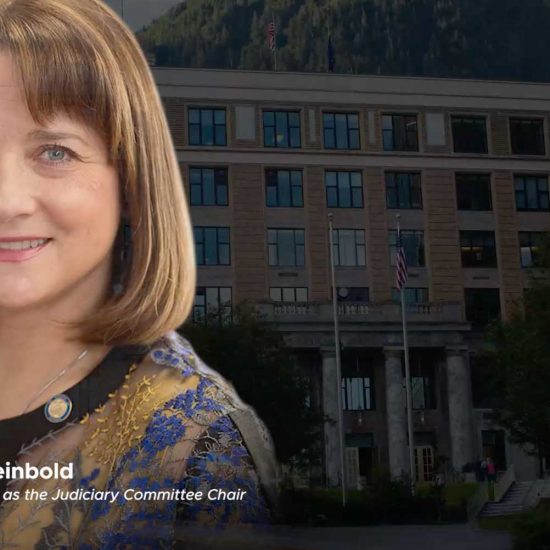Alaska’s state representatives and senators chose not to adjourn this year’s Second Session of the 28th State Legislature by Sunday evening at 11:59 PM. As a result, the three ballot measures calendared for the primary election in August have been nudged into the November election. One of those measures will undoubtedly attract the lion’s share of local and national attention:
An Act to tax and regulate the production, sale and use of marijuana.
[ http://www.elections.alaska.gov/pbi_ini_status_list.php ]
The Campaign to Regulate Marijuana Like Alcohol in Alaska “YES on 2” Committee was organized by Tim Hinterberger, a University of Alaska-Anchorage professor, Mary Reff, a retired Anchorage accountant, and Bill Parker, a former Department of Corrections deputy commissioner.
[ http://regulatemarijuanainalaska.org/about/ ]
PR firms have since been making their way to the communications helm of messaging on both sides. The better the consultants, the more dynamic the messaging and branding, so this particular public campaign should be fun to watch.
There are some solid, veteran political campaign advisors helping on both sides:
Pro-Pot
Leading the consulting efforts for the legalizing marijuana advocacy is Strategies 360 out of Seattle. The firm has satellite offices in 10 states including Alaska. Strategies 360 specializes in public policy, government affairs and marketing. The firm’s Anchorage office is managed by longtime Alaska public radio correspondent David Shurtleff. Ethan Berkowitz, the former Democratic state representative and minority leader (and now host of Anchorage’s KFQD radio morning talk show) is also on the Alaska team, as is Taylor Bickford who was the executive director of the Redistricting Board appointed by Gov. Parnell and has filled various management capacities for the state and national Republican Party.
The national advocacy group Marijuana Policy Project is capturing attention with cogent arguments for expanding medical marijuana access, revising prison-sentencing guidelines and adopting a “sensible system of regulation” of marijuana in all 50 states. MPP’s website is detailed and informative. The organization is based out of Washington D.C. [ http://www.mpp.org/about/ ]
Smaller, targeted groups are also forming in Alaska to support legalization like the group of graduate students studying business administration at the University of Alaska Fairbanks (UAF) School of Management called the Coalition for Responsible Cannabis Legislation (CRCL). Led by Executive Director Brandon Emmett, the organization “seeks to establish a coalition of reputable business owners, educated consumers, and prominent persons in the community with the purpose of influencing future cannabis legislation.”
[Per its April 23, 2014 Press Release: http://us8.campaign-archive1.com/?u=5bcfd7e2f2df15880185220f5&id=ef3beb620b&e=ec095b62dc ]
No-Pot
During 2013 there didn’t seem to be a concerted effort in protest of the rumblings of a pot movement, nor of mounting signatures. But then certification of the ballot initiative to legalize marijuana was made and in April 2014 the group Big Marijuana. Big Mistake. Vote No on 2 filed its application with the Alaska Public Offices Commission (APOC).
The founders of Vote No on 2 include Deborah Williams, former director of the Alaska Lung Association and Anchorage youth advocate, Northwest Strategies owner and former KTUU Channel 2 News anchor Tim Woolston, entrepreneur Matt Larkin – who purchased Dittman Research from legendary political consultant Dave Dittman, and Alaska Native leader Mike Williams of Akiak (42 miles northeast of Bethel) who is an Iditarod musher and mental health/substance abuse counselor.
Comparable to Strategies 360, the informal partnership of big guns like Dittman Research and Northwest Strategies upped the ante in the messaging game. Both firms are notable for their design work, production capabilities (T.V. and radio) and digital craftsmanship. Dittman is one of the premier polling firms in the state and is eponymous for Republican surveys and research.
A national group called Smart Approaches to Marijuana (SAM) chaired by former Rhode Island Congressman Patrick Kennedy (son of the late U.S. Senator Ted Kennedy) has announced intentions to reject legalizing marijuana in Alaska. The group’s three primary goals (from its website) are to: Believe in an approach that neither legalizes, nor demonizes, marijuana; Reject dichotomies — such as “incarceration versus legalization” — that offer only simplistic solutions to the highly complex problems stemming from marijuana use and the policies surrounding it; Champion smart policies that decrease marijuana use — and do not harm marijuana users and low-level dealers with arrest records that stigmatize them for life and in ways that make it even harder for them to break free from cycles of substance dependence.
[ http://learnaboutsam.com/about/ ]
Devil or Angel?
The debate over legalizing marijuana in Alaska has been slow and simmering. As articles and commentaries surface across the Internet, and political messaging blossoms, the boiling point is imminent.
The history of court rules and laws dealing with marijuana in the Last Frontier is instructive. Journalists Megan Edge and Laurel Andrews with AlaskaDispatch.com wrote a thoughtful and comprehensive article on the timeline and mileposts of pot’s legal evolution. Clearly, as witnessed by the ebb and flow of court and policy decisions, it’s been a love-hate relationship with cannabis in Alaska.
[ http://www.alaskadispatch.com/article/20140413/timeline-notable-moments-40-years-alaskas-history-marijuana ]
The 1972-1975 Ravin v. State of Alaska legal journey would ultimately set temporary parameters in the state as the Alaska Supreme Court ruled possession of marijuana in the privacy of one’s home constitutionally protected. Buy an El Camino and crank up the Doobie Brothers on your 8-track tape stereo, it’s the 1970s in Alaska!
As Edge and Andrews delineated in their chronology, medical marijuana became legal in 1989 as 69% of Alaskan voters supported an initiative. To legally possess cannabis for health reasons, registration was required and one’s name added to a State database, authorizing possession of an ounce or up to six plants, of which only three could be budding. The problem remains that obtaining pot is still prohibited and illegal.
Below is the link to the application for a Medical Marijuana Registry card.
http://dhss.alaska.gov/dph/VitalStats/Pages/marijuana.aspx
Fast-forward through two failed attempts to legalize herb in 2000 and 2004 in Alaska, and now the state is offering its registered voters a third chance through popular vote. This time, there may be a trend as Washington state and Colorado have legalized private marijuana sales and use in the last 18 months.
Based on the website PolicyMic’s statistics, medical marijuana is legal in 20 states and Washington, D.C., while legalization momentum via ballot measure and voter approval in 2014 is occurring in New York, Tennessee, Florida, Arizona, Kentucky, Maryland, New Hampshire and Alaska. The site further states: “Based on a combination of factors including polling data, the current legal frameworks in place, and ballot measures in the works,…. California, Oregon, Alaska, Maine and Massachusetts are the five states most likely to move forward with legal weed.”
[ http://www.policymic.com/articles/80099/where-will-marijuana-be-legal-next-this-map-points-to-5-specific-states ]
APE intends to address the marijuana legalization pros and cons in more detail in coming months through contributing writers and analysis.
We leave you with some considerations:
(1) Is the debate over legalizing marijuana more about freedoms or the fear of abuse and consequences?
(2) Are the pundits of legalization overlooking, or blatantly ignoring, the medicinal benefits from marijuana and particular edibles?
(3) Are the proponents of legalization overlooking, or blatantly ignoring, the risks and negative physiological impacts of marijuana and misuse?
(4) How important is money (namely taxes and income to the State) in the dialogue?
(5) Can sentencing laws be changed so it’s not as easy to incarcerate for marijuana possession and use, yet prohibition remain?
(6) How will Americans reconcile the federal government still not defining acceptable and prohibited use and sales in individual states while more states consider legalizing (yet the federal government defines as illegal)?
Indeed, the marijuana issue will be a worthwhile discussion, and apparently the devil is in the details.













Mike Williams / April 24, 2014
More thoughtful discussions on the marijuana initiative in the future. Spending a lot of time with my grand kids. Keeping us all healthy as possible, taking care of 50 dogs and trying to put in hunting in between. Also putting on a Subsistence Forum in Bethel next week. Busy with all of this stuff!
/
Tim Woolston / April 25, 2014
Tom-
Thanks for engaging on this subject. There is a lot for Alaskans to learn about what this initiative will do to our state if it passes. Ballot Measure 2 is not about legalizing marijuana. It’s about outside interests commercializing marijuana, including concentrates with names like Butane Hash Oil and Shatter that are far more potent and dangerous than the pot many people think of. We look forward to a full and robust debate and since we expect to be grossly outspent we will be relying on forums like yours to get the truth out about this initiative.
Tim Woolston
Deputy Treasurer
Big Marijuana Big Mistake Vote No on 2
/
Keith Forbush / July 17, 2014
I just want to know what the big deal is? Sure BHO (Butane hash oil) more potent then “the pot many people think of”. Aren’t vodka, whiskey and rum more potent then beer? Aren’t there a lot of people who die each year due to alcohol related causes such as liver failure and fatal alcohol related car accidents? Most of the time in these fatal accidents it’s an innocent person that decided to go to work or a family members house before a drunk criminal decided to run a red light going 80mph and hit another car or pedestrian. Yet alcohol is still legal. It’s not just about people being able to get high. Its about creating jobs, easily sustainable revenue most importantly freedomof the people.
Vote yes on 2.
/